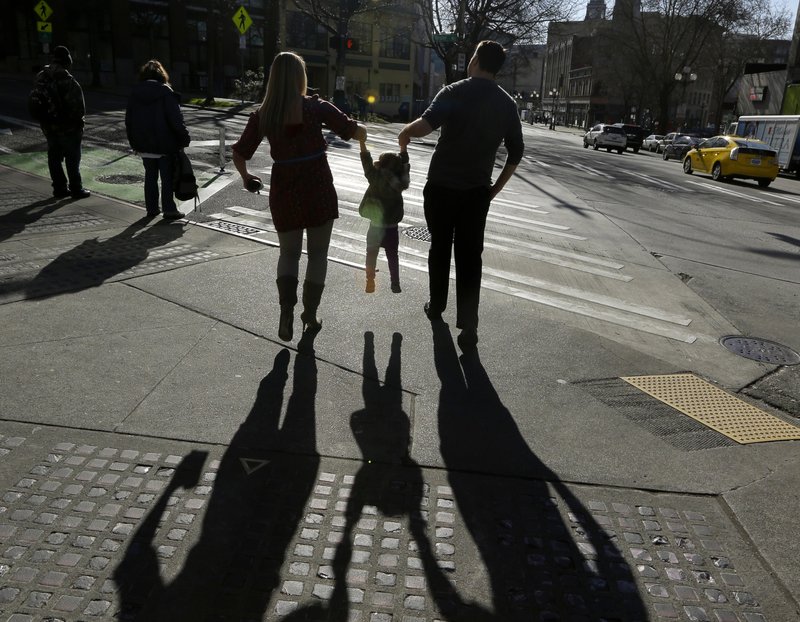Expanded child tax credit may not be as generous as it seems
The expansion of a child tax credit helped seal Congress’ approval of the Republican tax overhaul. Sen. Marco Rubio had insisted that House-Senate negotiators allow low-income households to claim more of the child credit. And the final bill did so.
So do poor families stand to benefit? Maybe. It depends on their circumstances.
The child credit is designed to help working families offset some of the cost of raising children. Under current law, the credit lets households reduce their taxes by up to $1,000 for each child under their care. The tax overhaul doubled that credit to $2,000.
It also made more of the credit refundable. That means that if the credit lowers a family’s tax liability below zero, they can still receive the balance of the credit in the form of a tax refund. And more people will now be eligible to claim the credit because the income level at which it phases out has been raised.
On the surface, this sounds like happy news for American families. Yet tax experts say the expanded child credit will actually provide little relief for some of the lowest-income families.
___
HOW IT WORKS NOW
A family can claim the credit for each child under 17 they claim as a dependent and whom they have housed for at least half the year The credit begins to phase out when adjusted gross income exceeds $75,000 for single parents or $110,000 for married couples.
The dollar value of the credit does rise with a household’s earnings. As a result, the proportion of families that receive the credit — as well as the average size of the credit — is higher among moderate- and middle-income families than among low-income households, according to the Tax Policy Center.
Still, the Center on Budget and Policy Priorities has concluded that the credit helped lift roughly 2.7 million people out of poverty in 2016.
___
HOW THE CHANGES WOULD WORK
The final version of the Republican bill doubles the full tax credit to $2,000 per child. And by raising the income threshold at which the credit phases out, the bill will allow more middle and upper-income families to claim it. It now won’t start to phase out until income hits $200,000 for single filers and $400,000 for married couples.
For families that earn too little to owe tax, the bill also made up to $1,400 of the credit refundable. Before Rubio had demanded an increase, the refundable portion in the Senate bill had been $1,100.
Yet like other elements of the tax bill that go to individual families, the increased child credit — and the increase in the refundable portion of it — are set to expire in 2026. In addition, to receive the child credit, parents will now have to provide their children’s Social Security numbers. This requirement is intended to deny the child credit to people who are in the U.S. illegally.
___
WHY IT’S SO IMPORTANT. . .
Rubio, a Florida Republican, had threatened to vote against the bill without a sweetened tax credit for lower-income working families. Republicans needed his vote to help secure victory in the Senate.
So Rubio won a late-stage concession to increase the portion of the child credit that would be refundable for households that owe no income tax.
___
… AND WHY IT’S NOT SO IMPORTANT
The compromise tax bill does make more families eligible for the credit. And it increases its size. Yet it fails to provide much help for lower-income families, says Chye-Ching Huang of the CBPP.
Because of how rules covering the credit’s refundability are written, Huang expects about 10 million children among the lowest-income working families to receive a token increase of up to $75 per family —or no increase at all. That is because the refundable portion of the credit doesn’t kick in until a family has income of $2,500. For each additional dollar earned, a family receives a refundable credit worth 15 cents until it reaches its maximum credit of $1,400. But some families won’t come close to that threshold, Huang said.
The new requirement for a Social Security number also would harm about 1 million children in low-income working families by denying them the credit they now receive because they lack a Social Security number, she said. This will be a particular problem for some immigrant families because undocumented immigrants with children would not have a Social Security number.
Additionally, the benefit of the child credit will be eroded for some families by the tax bill’s elimination of personal exemptions. Currently, a taxpayer can deduct from their income a $4,050 exemption for herself, her spouse and each dependent.
On top of that, the benefits of the overall tax overhaul heavily favor corporations and high-income families over low- and moderate-income Americans. And what’s more, millions of American households could face tax hikes in coming years once their tax cuts expire after 2025.
[livemarket market_name="KONK Life LiveMarket" limit=3 category=“” show_signup=0 show_more=0]




No Comment